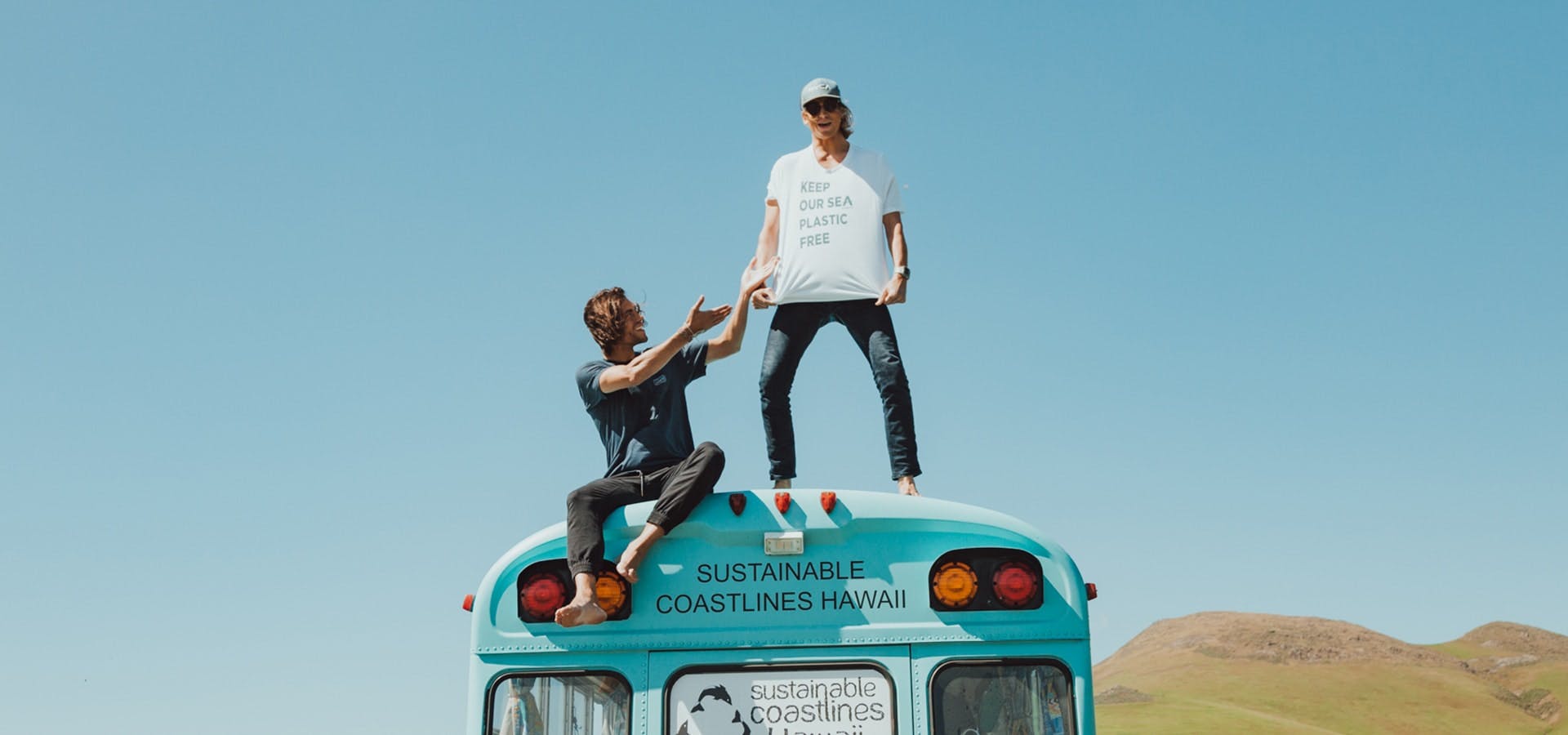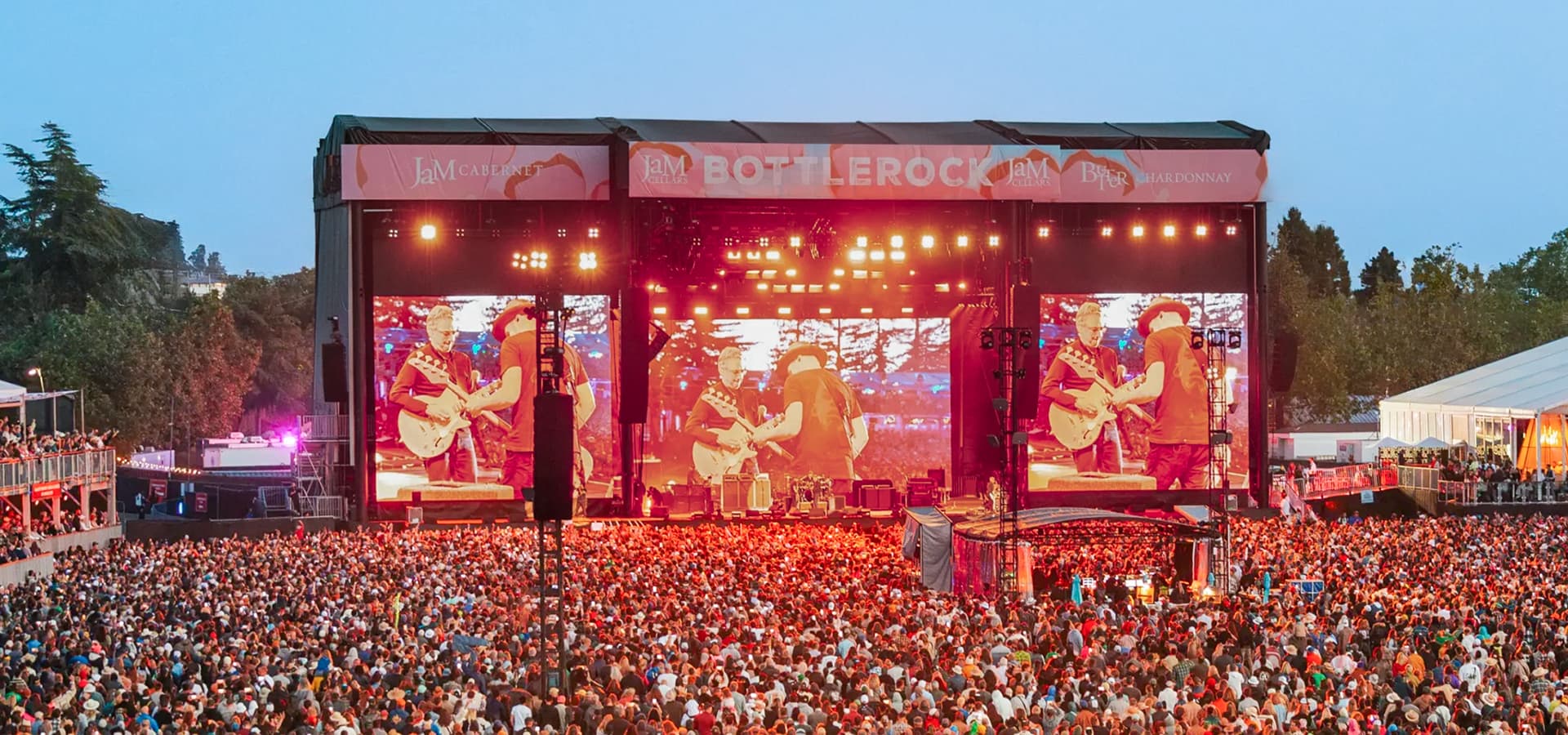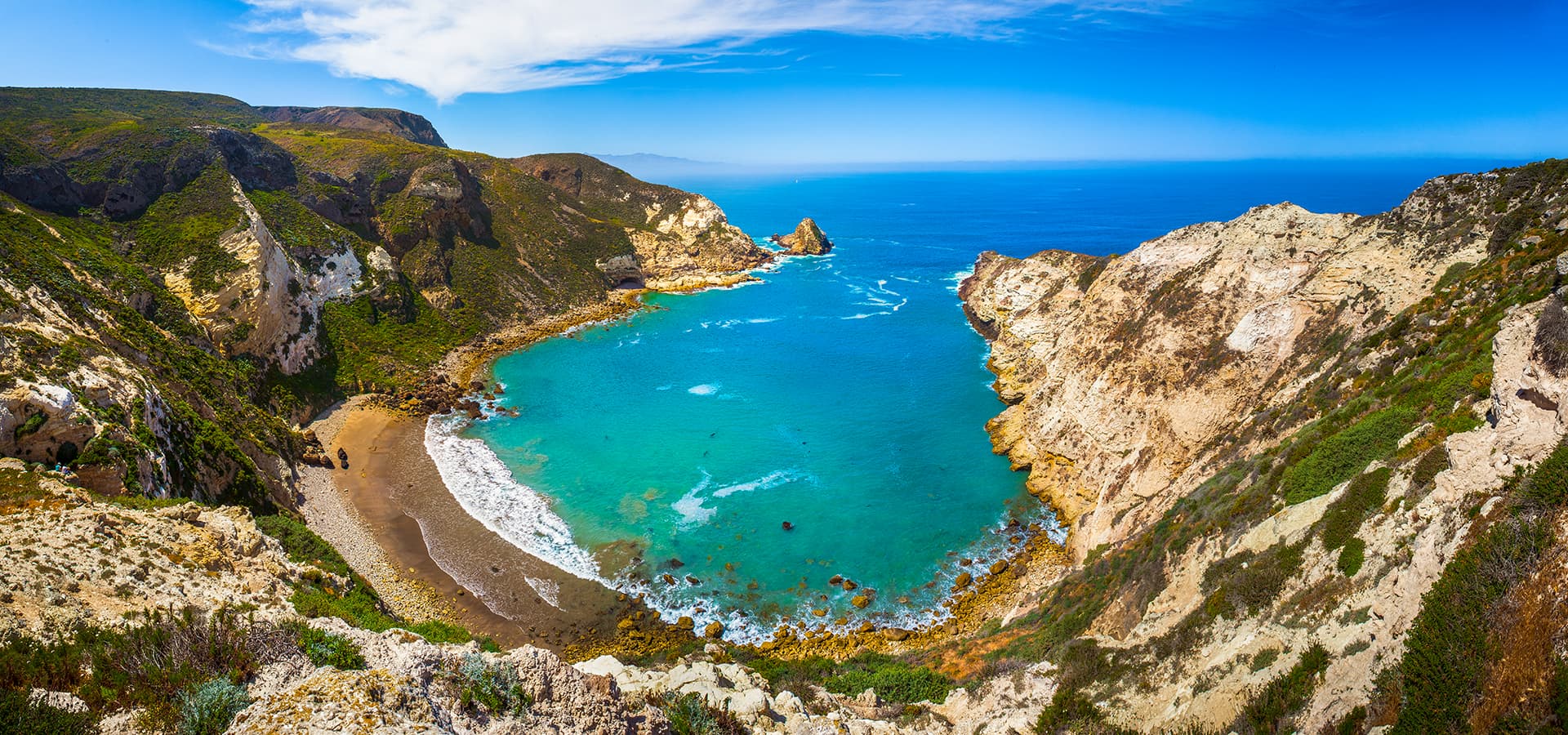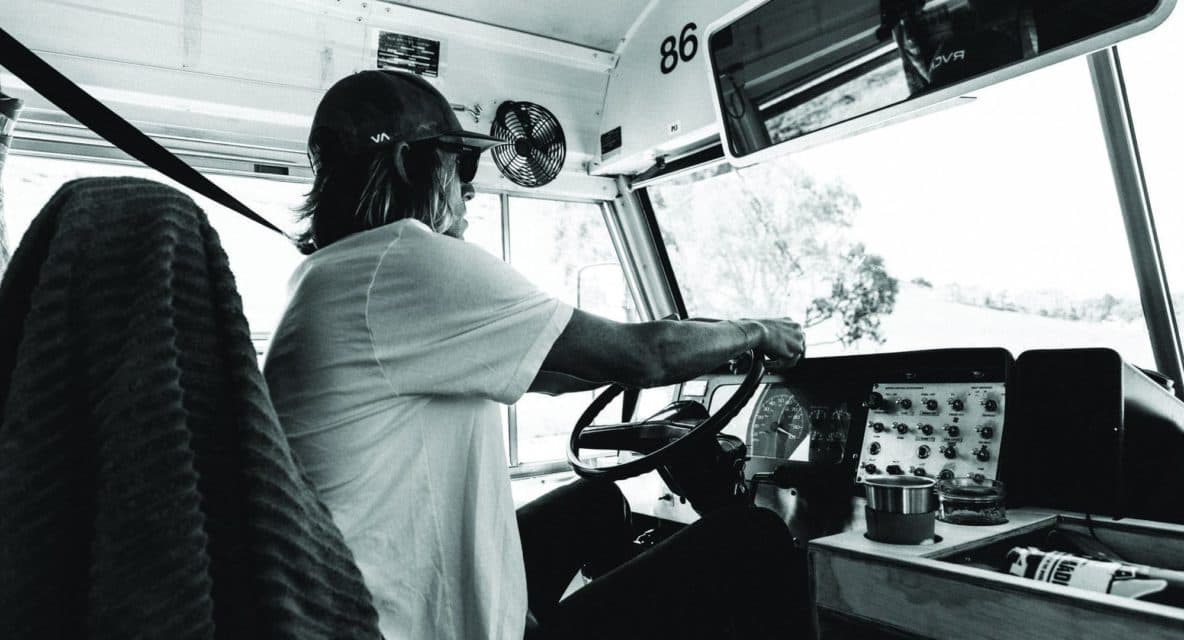
Both men graduated from the University of Hawaii with environmental science degrees. Nick also has a master’s in environmental policy.
The idea to do an educational road trip came from Hans. In college he’d done an internship with the nonprofit Sustainable Coastlines Hawaii and found it rewarding. After graduating, Hans landed a job working for a solar energy company, but felt a calling to help save the oceans. “Nick and I were both raised around the water and grew up surfing. We developed a massive amount of respect for our environment.” His aha moment came while surfing one day off Oahu: “I got taken out by a wave only to resurface with microplastics in my hair, on my face and in my mouth.”
The brothers got a loan from their uncle to purchase the bus, and their dad, a construction manager, helped them with the impressive buildout.
“We have beds that slide out to fit our tall, lengthy bodies, solar energy, a fridge, surfboard rack, LED lighting, hot water, outdoor shower and many other amenities. It really is quite the dream vehicle, thanks to our father and his crazy-good carpentry skills,” says Nick.
Although SCH provided the umbrella of working under a nonprofit, as well as the educational decks, it couldn’t provide financial support. The brothers were unfazed. “We decided to just go for it and make it happen,” says Nick. They self-funded what they could, sold sponsorships to companies for bus advertising, held a couple of fund-raisers and set up a GoFundMe site. So far it has raised more than $11,000 of a $25,000 goal.
Encino resident and attorney Michael McNamara is an SCH Road Trip donor. He met the Schippers through his son Henry, who lived with Hans at the University of Hawaii. “As a surfer, I treasure the sanctity of our oceans and appreciate what these brothers are doing. It is obvious that plastic is a huge growing cancer on our planet. The fact that these two young men are dedicated to eradicating this problem is fantastic,” Michael says, adding, “Their mission, to educate our youth, is the first important step.”
This past spring Hans and Nick visited several LA schools including the Multicultural Learning Center elementary and middle schools in Canoga Park.
“Hans and Nick are really incredible with the kids. They really speak to the students on their level and impart a real sense of importance about what they, and all of us, need to be doing to protect our oceans,” says Bill Werth, principal of the middle school.
The brothers think that their own youth gives them an edge. “We connect because they can see that we are not that much different than them. In addition, it’s because we are speaking about an issue that is transparent and that we are passionate about. If I can look a student in the eye and tell them something about this problem with complete sincerity, I think that carries a lot of weight,” Nick says.
And they try to integrate a sense of fun. “Plastic pollution is a sad topic and you can easily fall down the rabbit hole. So Nick and I are energetic and keep the presentations lively through humor, storytelling and full-on stoke. The kids laugh, get excited and are engaged,” Hans adds.
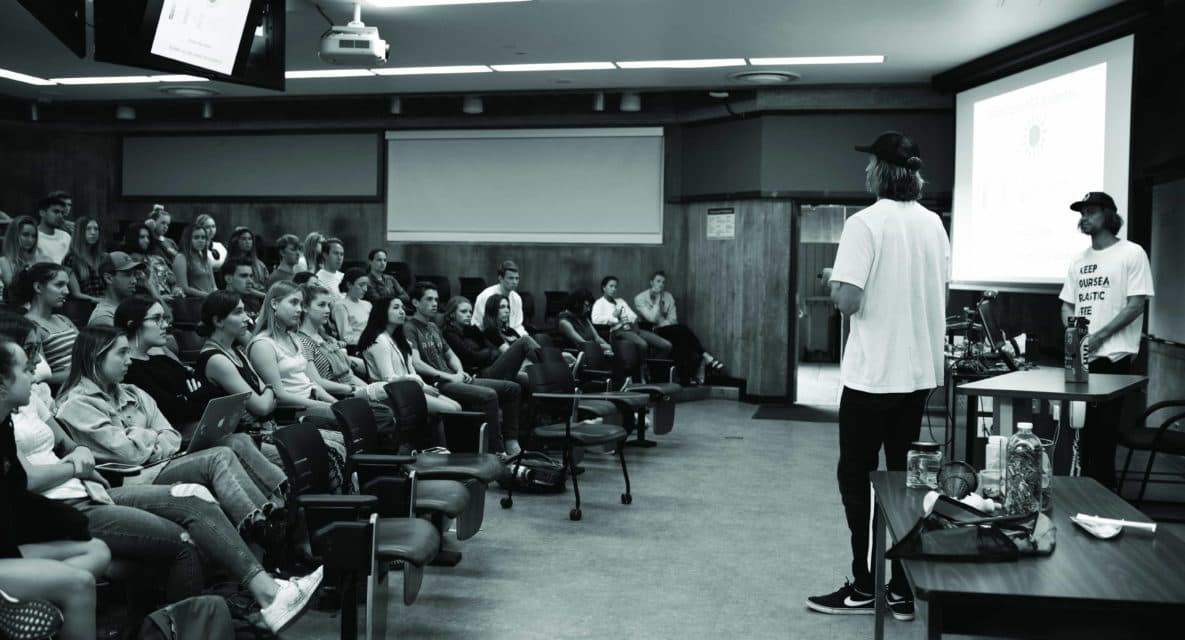
This summer the Schippers will be working with Parley, a company that turns ocean plastics into usable material for companies like Adidas and Starboard Paddleboards. They’ll do cleanups at national parks throughout Canada and host educational programs for participants. Then in the fall, with school back in session, they’ll hit the road again.
The brothers view their mission as ongoing and the results as tangible. “There have been numerous schools that have messaged us explaining the actions taken in their school—whether that be banning Styrofoam lunch trays and plastic utensils or starting environmental clubs. We’re super motivated by watching our future take action and implementing the changes needed,” Hans shares.
The duo has a long-term goal to grow from educating 10,000 students to more than 500,000 students a year, and they’d like to have numerous traveling teams—other college graduates—working with them. “The ultimate goal would be not to have a need for NGOs like Sustainable Coastlines Hawaii, because that would mean that gap or problem in society is no longer existent.”
Operating under the umbrella of Sustainable Coastlines Hawaii, SCH Road Trip is a 501 (c)(3) nonprofit organization. For more information, go to schroadtrip.com





